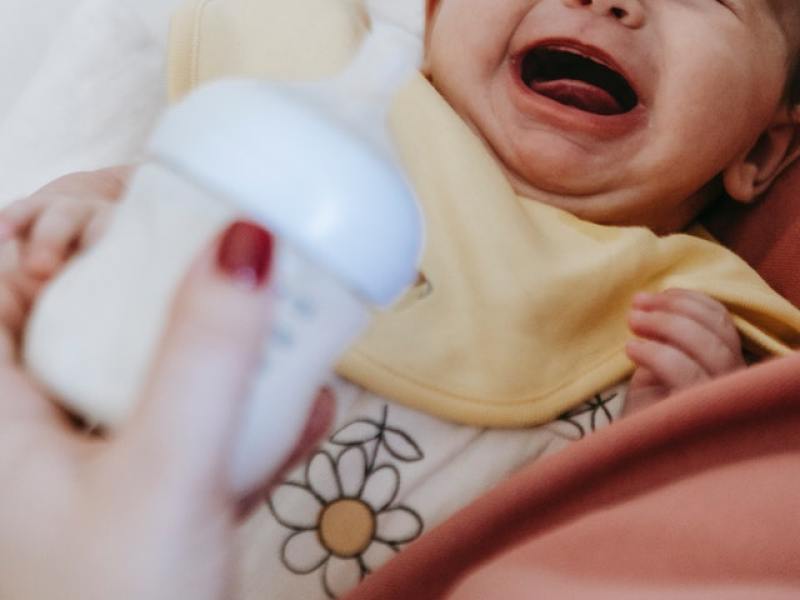
Breastfeeding moms are now pumping extra milk and donating it to parents who are struggling through the baby formula shortage.
Mothers who breastfeed and have a steady stream of supply are producing milk to share to parents who regularly feed their infants formula but are having trouble finding it amidst the baby formula shortage. The U.S. is experiencing a 40% shortage of infant formula, causing panic, worry, and anger among parents and caregivers who rely on it to sustain their young. But moms with surplus breastmilk who have enough supply to go around are coming to the rescue.
According to CBN News, one such mom is Kyndall Lane, who shared that she feeds her own infant with her breastmilk and pumps even more to give to friends, who she said do not breastfeed their child for good reasons. They now rely on her breastmilk now that the typical store-bought infant milk has become difficult to find amid the baby formula shortage.
"You know, in the Bible, it says, 'To whom much is given, much is required,' and I have been so blessed to be able to provide more than enough," Lane remarked. "So I just feel God has placed it on my heart to be able to help moms in this time specifically."
Milk Banks as Another Source of Breastmilk
Aside from giving breastmilk to her friends whose babies need it, Lane also donates her breastmilk to the the Children's Hospital of the King's Daughters (CHKD) Breast Milk Bank in Virginia, one of the many breast milk banks in that are part of the Human Milk Bank Association of North America (HMBANA). CHKD Breast Milk Bank director Ashlynn Baker explain that at these milk banks, they screen donors and "analyze, pasteurize, and culture milk in a microbiology lab, reducing the risk of transmission of disease."
According to Baker, the CHKD Milk Bank primarily provides babies who are currently hospitalized but some HMBANA milk banks may offer assistance to the general public. She also cautioned parents about obtaining breastmilk from unreliable sources if they are unable to use an HMBANA outlet.
Baker explained that in "informally shared" or sold human milk situations in the black market, customers are at risk of "contamination, risk of transmission of viral disease," and are also at risk of "exposure to contaminants, such as medications, that mothers are taking, that they assume are safe for lactation, and they are not."
Also Read:Rep. Beth Van Duyne Launches Website To Help Mothers Find Milk Amidst Baby Formula Shortage
U.S. Government and Private Companies Addressing Baby Formula Shortage
The U.S. Food and Drug Administration said that the major baby formula manufacturing plant that had been shut down since February will be back up and running in a couple of weeks, but it will take about eight to 10 weeks after coming back before its products would reach store shelves. Private companies are also mobilizing to address the lack of supply.
Bloomberg reported this week that Nestle SA, which owns Gerber baby food, said it is now airfreighting baby formula to the U.S. Nestle, which is the world's largest food company, as also fast-tracked the importation of Gerber Good Start Extensive HA from the Netherlands and Alfamino from Switzerland, which are high priority as they are required by babies who have allergies to cow milk protein, a spokesperson reported in a statement. These products have been cleared for sale in the U.S. Meanwhile, Nestle's rival Danone is also working to increase production to help address the baby formula shortage. The FDA also gave in to pressuring calls for more flexibility in purchasing other formulas that could be used especially by low-income families.
Related Article:Pastor Warns Of Global Food Crisis From Russia-Ukraine Conflict

















